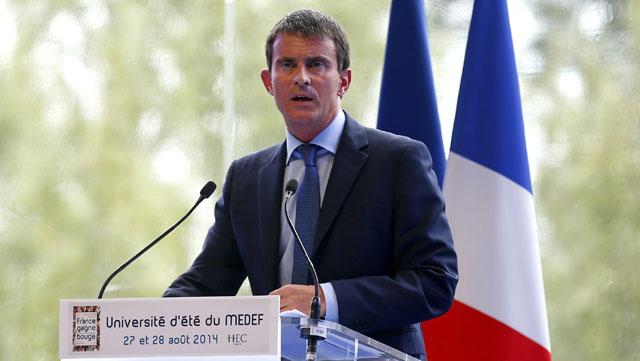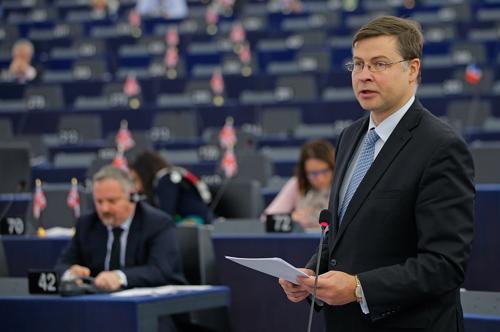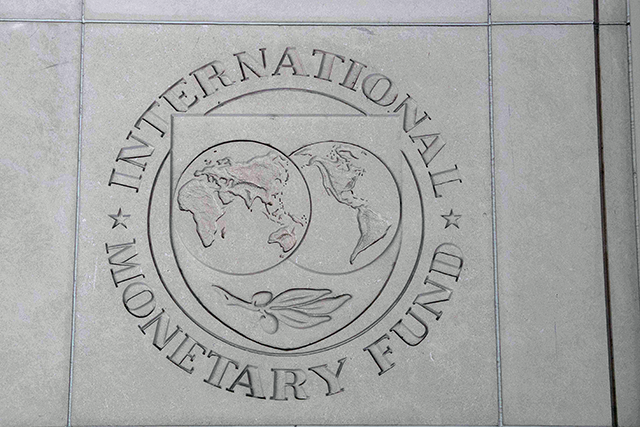You are here
French public debt over 2.0 trillion euros for first time
By Agencies - Sep 30,2014 - Last updated at Sep 30,2014

PARIS — France's public debt has topped the symbolic level of 2 trillion euros for the first time, putting Paris on a fresh collision course with the European Union (EU) as the government prepares to unveil its annual budget.
The total national debt amounted to 2.023 trillion euros ($2.57 trillion) in the second quarter of the year, which represents 95.1 per cent of the gross domestic product (GDP), national statistics agency INSEE indicated on Tuesday.
EU rules say that debt must not exceed 60 per cent of GDP, or be falling significantly towards this ratio.
In the first quarter of the year, debt stood at 1.995 trillion euros, or 94.0 per cent of GDP, INSEE noted.
President Francois Hollande stressed that he had inherited a difficult debt situation when he entered the Elysee Palace.
"In the five years before I came to power, public debt rose by 600 billion euros. Now we're at 2,000 billion. So our role has to be to get the deficit in hand so we can avoid pushing up the absolute level of debt," said Hollande.
France is already at loggerheads with the EU over its budget deficit, which is supposed to be kept under 3 per cent of GDP.
Paris promised to bring the deficit in-line by next year but, in a stunning about turn, announced last month that it was pushing back this target until 2017.
The deficit this year is forecast to be 4.4 per cent of GDP, dropping only fractionally to 4.3 per cent next year.
France is struggling with an economy at a standstill and sky-high unemployment.
There has been zero growth for the first two quarters of the year and Finance Minister Michel Sapin is banking on sluggish output of 0.4 per cent for the whole of the year.
'Very low rates'
France will on Wednesday publish its annual budget, which is expected to confirm the gloomy outlook and reaffirm it will miss its deficit targets.
The economy ministry stressed that the government's plan to clean up the public finances and make sweeping cuts in public spending "should allow us to stop the growth in debt".
"France also enjoys the confidence of investors which allows the state, but also companies and individuals, to borrow at very low rates," the ministry said.
To combat the economic crisis, Hollande's deeply unpopular government has put in place a "Responsibility Pact" which offers companies tax breaks of 40 billion euros in return for creating 500,000 jobs over three years.
However, given the parlous state of the public finances, the tax breaks are compensated by 50 billion euros in public spending cuts.
Hollande steeled the French people for the budget by saying: "There is no painless savings plan, otherwise it would already have been done."
"Savings are inevitably painful. No sector can accept seeing its habits, sometimes its finances, challenged," he added.
Christopher Dembik, an analyst at Saxo Bank, said: "The problem with France is there is no clear trajectory for reforms and the reforms that do exist are too unambitious and very, very slow to be implemented."
Even Economy Minister Emmanuel Macron has admitted that the French economy is "sick" due to its perennially high unemployment.
"There has been a fever for several years in this country which is called mass unemployment ... there is no choice but to reform the economy," stressed Macron, a 36-year-old former Rothschild banker, a recent surprise choice for economy minister.
Last week, former president Nicolas Sarkozy said he would change the tax system to help companies and pledged on Sunday to win back National Front voters one-by-one in his first televised interview since announcing his return to French politics.
The former president, who is seeking the leadership of the main rightist UMP party ahead of the 2017 presidential race, avoided giving policy details but sought to reassure companies and voters that he had heard their concerns.
"Today, global growth has returned to close to 4 per cent, Germany is prospering, Europe is not in crisis, and yet we continue to stagnate and have rising unemployment. Why? Because our model must be completely restructured," he said in the interview on France 2.
Sarkozy said the only question that mattered was to find a tax system that would allow businesses to create growth and jobs, and that would stop young people leaving France because they feel they cannot succeed at home.
"If you tax people and companies in France more, how can you expect them to be competitive? If companies lose market share, how can you expect unemployment not to rise? That's the key," he indicated. "What counts is giving our businesses the chance to gain market share."
Sarkozy, who as president raised the retirement age to 62 from 60, loosened the 35-hour workweek and made overtime more attractive through tax tweaks, remains a divisive figure.
Related Articles
France's Socialist Prime Minister declared his love for companies and ally Germany Wednesday in a speech that earned him rapturous applause from the country's business elite following a damaging political crisis.
STRASBOURG, France — The European Commission on Tuesday said France, Italy and Portugal were in violation of European Union (EU) rules on pu
DUBAI — Debt levels, unemployment and budget deficits will spike as the Middle East endures a coronavirus-led recession, piling pain on econ


















